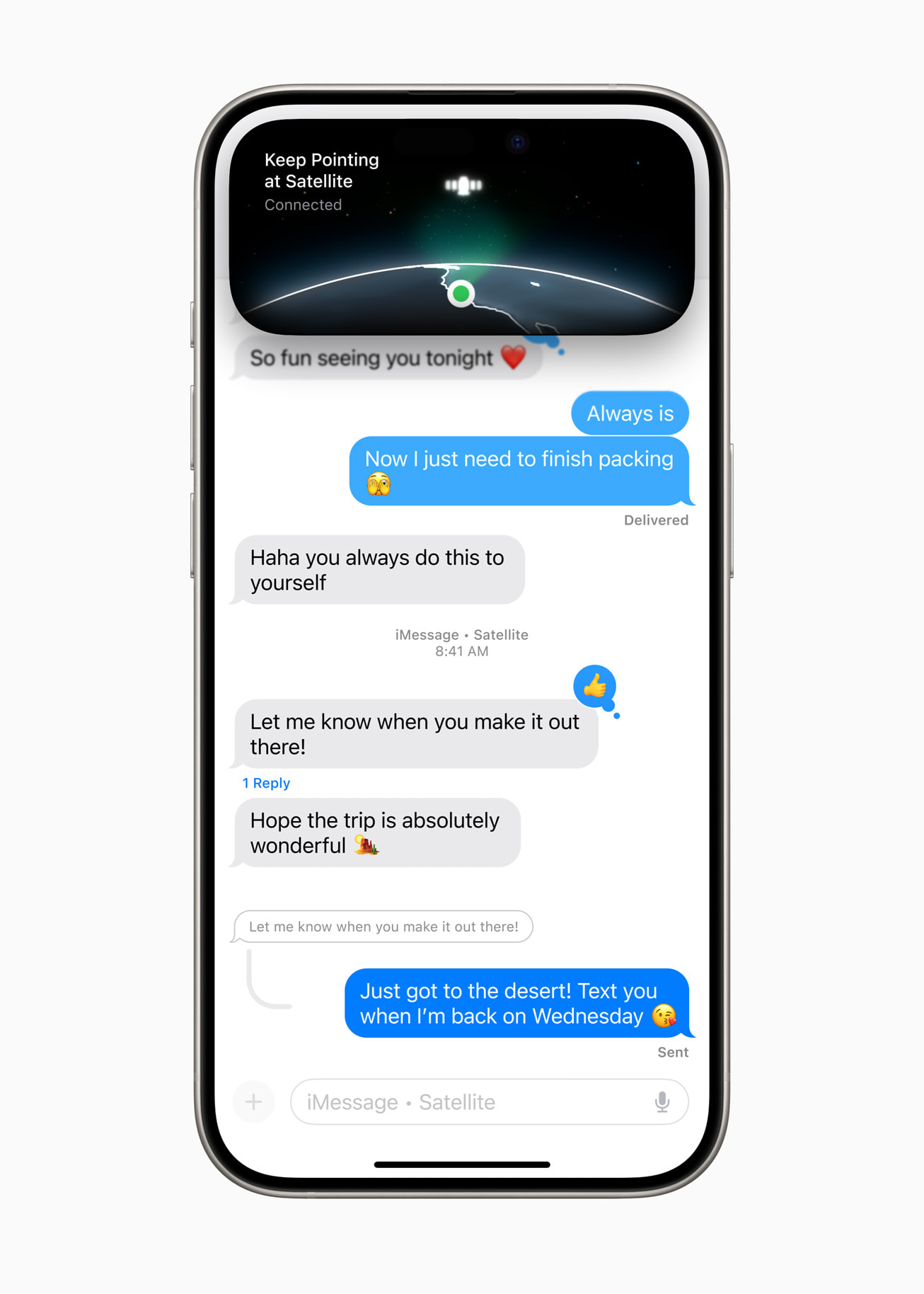
In this photo illustration, the Apple iOS 18 and Siri AI assistant logo seen displayed on an Apple iPhone. Photo Illustration by Filip Radwanski/SOPA Images/LightRocket via Getty Images
How Apple’s new operating system could open up the space economy
The introduction of iOS 18 means your iPhone is now a (better) satellite terminal.
When Apple releases the latest version of its iPhone operating system later this month, the new software will feature improved artificial intelligence, a password manager and the ability to send text messages via satellite.
The latter is one of many expected improvements for users but could mark a significant change for the space economy.
“It’s huge,” said Caleb Henry, the director of research at Quilty Analytics, a research and consulting firm. “The growth of the satellite industry has always been limited by the availability of user terminals. If the user terminal is cheap and easy to use, then the market has grown rapidly … Suddenly, the total addressable market for satellite services can skyrocket. With emphasis on can. Doesn't mean that it does, but it can.”
Apple has been touting its work to boost space capabilities for roughly two years.

In 2022, the tech behemoth announced a new service called Emergency SOS and said it would work with satellite company Globalstar to allow iPhone users to make emergency calls when they don’t have a signal or WiFi. As part of the deal, Apple said it was investing $450 million to develop, expand and enhance Globalstar ground stations in Alaska, Florida, Hawaii, Nevada, Puerto Rico, and Texas.
“Emergency SOS via satellite is a perfect example of how American ingenuity and technology can save lives,” Jeff Williams, Apple’s chief operating officer, said in a November 2022 release. “We are proud this service is enabled by leading U.S. companies, and that our users can explore off-the-grid areas knowing they are still within reach of emergency services if they are in need.”
Yet during a launch event for the iPhone 14 in September 2022, Ashley Williams, a satellite specialist at Apple, warned “the bandwidth is so limited that even sending a text message is a technical challenge.”
Now with the release of iOS 18, users with iPhones 14 or later will be able to do exactly that.
“We’re using the same groundbreaking technology that gave us Emergency SOS via satellite to bring you Messages via satellite,” Ronak Shah, Apple’s director of internet technologies product marketing, said during an iOS 18 event.
On its website, Apple boasts that users can “Stay connected when you’re without Wi-Fi or cellular.”
GlobalStar representatives did not return phone calls or emails from Space Project asking about the partnership.
In February 2022, Globalstar announced it had reached a deal with Macdonald, Dettwiler and Associates Corporation (MDA) to buy 17 new satellites to replenish and extend the life of its existing constellation. Rocket Lab would build the satellites. Globalstar, headquartered in Covington, Louisiana, said in a SEC filing that Apple would reimburse the company for 95% of the capital expenses for the satellites.
GlobalStar expects to launch the satellites by the end of 2025.
“The Apple contract effectively breathes new life into Globalstar,” Henry said. “Apple brought Globalstar back into the world of relevancy.”
According to figures kept by Jonathan McDowell at the Harvard-Smithsonian Center for Astrophysics, Globalstar has 29 working satellites in orbit, including 24 in its Globalstar 2 series and five from its original Globalstar series.
Mike Gruss is a freelance journalist based in northern Virginia. Previously, he was editor-in-chief of Sightline Media Group, where he led publications including Defense News and Military Times, and has worked as the military reporter at SpaceNews.

